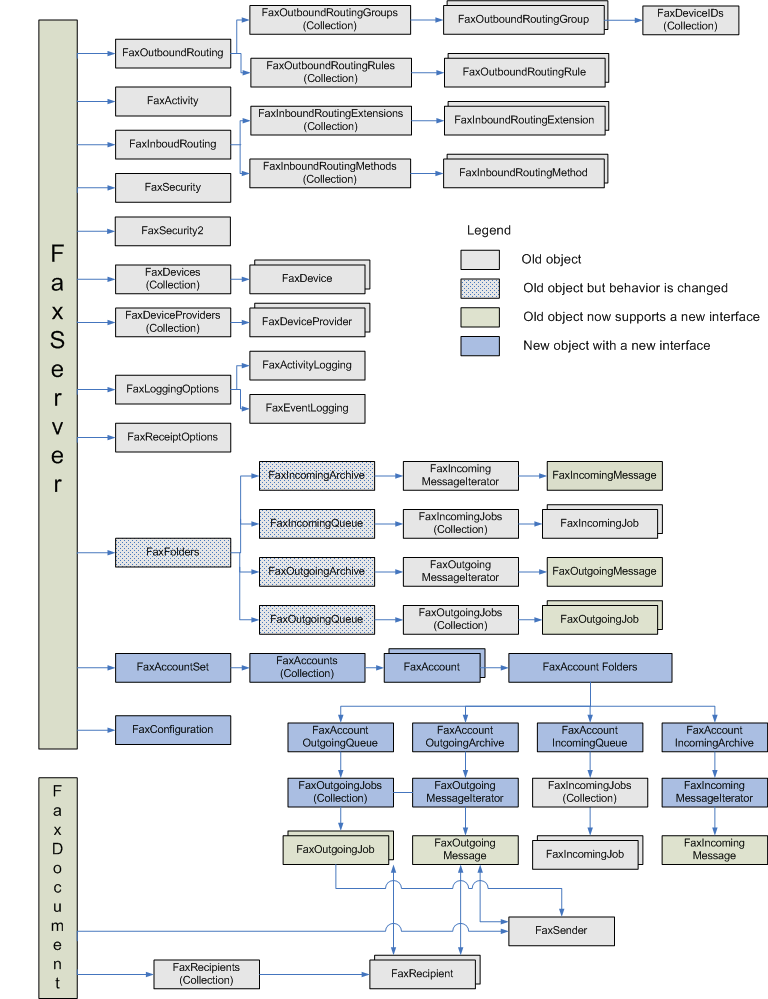Fax Service Extended COM Object Model
Most of the objects in the Fax Service Extended Component Object Model (COM) are organized in a hierarchical manner. The diagram that follows illustrates this hierarchy. Note that if multiple objects can exist, this is indicated in the diagram by a "stack" of objects; for example, multiple FaxOutboundRoutingRule and FaxInboundRoutingMethod objects can exist.
The client application must call the Connect method of the FaxServer object to establish a connection with a fax server before accessing other interfaces in the fax extended COM API or other fax client objects.
Note also that an application can call the CoCreateInstance function or the Microsoft Visual Basic CreateObject function to create only two of the objects in the model: the FaxServer and the FaxDocument objects. (This is indicated by shading in the diagram.) All of the other objects, with the exception of notification objects, can be accessed only through existing objects.
For a list and brief description of all of the objects, see Fax Service Extended COM Objects.
The extended COM supports notifications for fax service events. For more information, see Registering for Event Notifications.
